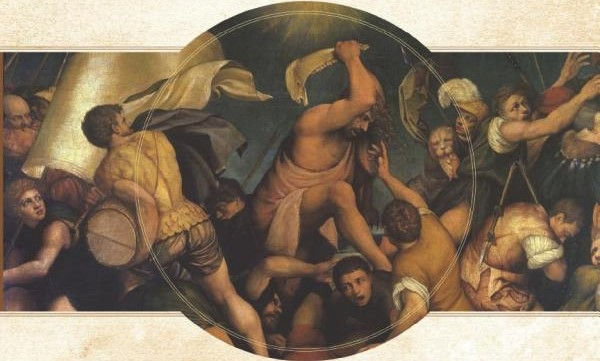“Where were you when I laid the foundation of the earth? Tell me, if you possess understanding!”
- Maddy Brooke

- Feb 11, 2023
- 2 min read

Here is another writing I did for one of my college classes. This week we had to read Job 38:1-42:6 and then respond to one of the prompts the teacher gave us. I chose to go with Prompt 1 which said: How does this passage highlight God's transcendence over creation? How can we learn from Job's response to God's judgment in light of his transcendence?
You can read Job 38:1-42:6 here and you can read it in any translation you prefer. I used the NET (New English Translation) with my response.
Here is my response:
In all honesty and fairness God’s first question to Job shows His ultimate transcendence over creation.
“Where were you when I laid the foundation of the earth? Tell me, if you possess understanding!” ~ Job 38:4
In this set of scripture, God answers Job’s requests and desire for a face-to-face encounter with Him, but at the same time God truly puts Job and his friends in their place by asking the question who can comprehend the wisdom of God? God’s wisdom is far beyond our basic human knowledge, and in the following scriptures, God reveals His hand in all of creation, and on the work that only He is capable of doing.
“On what were its bases set, or who laid its cornerstone when the morning stars sang in chorus, and all the sons of God shouted for joy?” ~ Job 38:6-7
“Who shut up the sea with doors when it burst forth, coming out of the womb,” ~ Job 38:8
“Is it by your understanding that the hawk soars, and spreads its wings toward the south? Is it at your command that the eagle soars, and builds its nest on high?” ~ Job 39:26-27
Ultimately, Job gets what he has been wanting for a while, an audience with God, but God pushes Job even further by asking who provides wisdom and understanding.
“Who has put wisdom in the inward parts, or given understanding to the mind?” (Job 38:36).
The answer, of course, is God, but the reason God asked this question was to open Job’s eyes to the question that he had been asking all along. His question of whether or not he deserved the suffering he had been enduring.
The understanding or knowledge of God’s authority over creation and the world is beyond the human mind, and this question both confirms our desire for understanding and establishes its limits of the human condition. The wisdom God puts in our minds makes it possible for us to desire for answers to things we don’t understand, as well as the desire to understand the mystery behind the why of our suffering.
God has only placed in us a small (almost miniscule) fraction of His infinite wisdom, which means we will never fully understand or even have the mental capacity to comprehend all His reasons or ways.





Comments